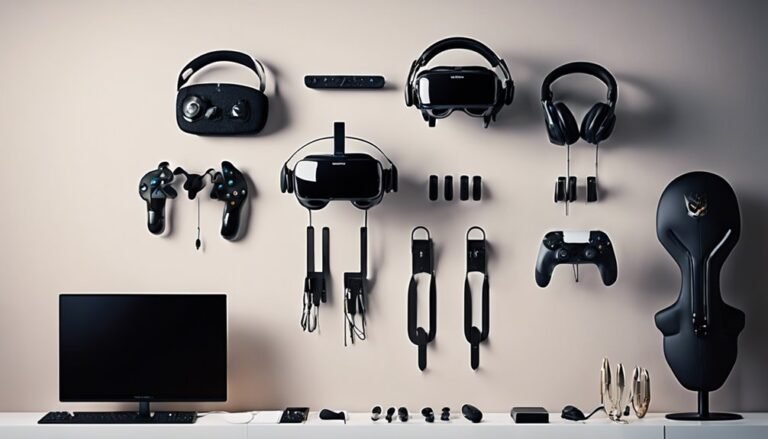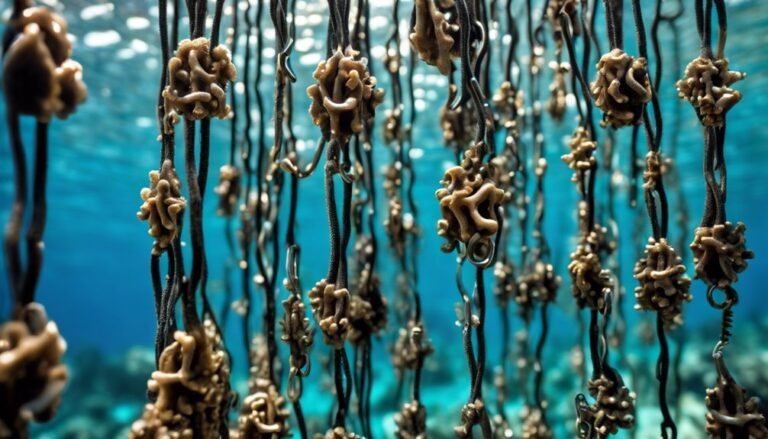Hanging Hooks for Fishing Rods
Benefits of Using Hanging Hooks for Fishing Rods
When it comes to organizing your fishing gear, hanging hooks for fishing rods offer a practical and efficient solution. These space-saving solutions maximize your storage area, allowing you to make the most of your garage, shed, or any fishing nook. By suspending your rods vertically, you not only clear clutter but also enhance rod protection. Keeping your rods off the ground reduces the risk of damage from accidental bumps or environmental elements, ensuring they stay in prime condition for your next adventure. Plus, accessing your gear becomes a breeze, so you can grab your favorite rod and hit the water with ease. Embrace the freedom that comes with an organized setup, and let those hanging hooks transform your fishing experience!
Different Styles of Hanging Hooks
When it comes to hanging hooks for fishing rods, you’ve got some exciting options to contemplate. Wall-mounted hooks provide a space-saving solution, while freestanding rack designs offer flexibility and easy access. Let’s explore these different styles to find the best fit for your fishing gear!
Wall-mounted Hook Options
Although you might not think about it, choosing the right wall-mounted hooks for your fishing rods can make a significant difference in both organization and accessibility. You’ve got various hook options, like single hooks, multi-tiered racks, or specialized rod holders, all designed to maximize your wall space. When considering hook placement, think about the rods you use most frequently and how easy it’ll be to grab them when it’s time to hit the water. A well-placed hook not only keeps your gear organized but also showcases your rods, adding a personal touch to your space. With the right wall-mounted hooks, you’ll enjoy the freedom and ease of accessing your fishing gear whenever the mood strikes.
Freestanding Rack Designs
If you’ve got limited wall space or prefer mobility, freestanding rack designs for hanging hooks are an excellent choice for organizing your fishing rods. These versatile setups allow you to store multiple rods without compromising space. Many freestanding designs incorporate sturdy materials that enhance rack stability, ensuring your rods remain secure and undamaged. Look for options with adjustable heights or modular components, giving you the freedom to customize based on your needs. Some racks even feature additional storage for reels and tackle, maximizing efficiency. So whether you’re setting up in your garage or taking it to a fishing spot, a freestanding rack design offers the perfect blend of convenience and organization, allowing you to focus on what you love most: fishing!
How to Choose the Right Hooks for Your Setup
When choosing hooks for your fishing setup, size and material are essential factors to take into account. You’ll want hooks that not only match your target species but also withstand the rigors of your fishing environment. Selecting the right combination guarantees better performance and durability, enhancing your overall fishing experience.
Hook Size Considerations
Choosing the right hook size for your fishing setup is essential for success on the water. You’ll want to take into account both hook weight and rod compatibility to optimize your experience. A heavier hook can help cast longer distances but may require a sturdier rod to handle the added weight. On the other hand, lighter hooks work well with more flexible rods, allowing for delicate presentations.
Think about the species you’re targeting; larger fish need bigger hooks to guarantee a solid catch. Don’t forget to match the hook size with bait type—too large or too small can deter bites. By carefully selecting your hooks, you’ll enhance your fishing adventures and embrace the freedom of the great outdoors!
Material and Durability
The backbone of a successful fishing setup lies in selecting hooks that not only suit your target species but also withstand the rigors of the environment. You’ll want to take into account various hook materials, like stainless steel or high-carbon steel, which offer durability and corrosion resistance. Choose hooks that can handle saltwater or freshwater conditions, depending on your fishing adventures. Additionally, think about rod protection; verify your hooks are compatible with your rod’s design to prevent damage during use. A well-chosen hook can enhance your experience, providing both performance and longevity. With the right materials, you’ll enjoy the freedom of fishing without worrying about your gear’s reliability. So, gear up wisely and get ready for your next great catch!
Installation Tips for Hanging Hooks
Although you might think installing hanging hooks for your fishing rods is a simple task, ensuring they’re securely mounted can make a significant difference in protecting your gear. Start by gathering the right installation tools, like a drill, level, and measuring tape. Next, consider your hook placement strategies—spacing is essential to prevent tangling and damage. Mark your desired spots carefully, ensuring they’re at a convenient height for easy access. When drilling, use anchors for extra support, especially in drywall or soft materials. After mounting, double-check the stability of each hook before hanging your rods. Proper installation not only maximizes your space but also keeps your rods safe and ready for your next fishing adventure. Happy fishing!
Organizing Your Fishing Gear With Hooks
Five effective strategies can help you organize your fishing gear with hooks, ensuring everything is accessible and neatly arranged. First, consider wall-mounted hooks for rods to maximize vertical space, creating space-saving solutions. Next, use labeled hooks for tackle boxes and accessories, making it easy to find what you need. Third, group similar items together; this enhances rod accessibility and helps you grab your gear quickly. Fourth, install a pegboard to hang various tools and lures, adding a touch of organization. Finally, regularly review your setup to maintain efficiency and adapt to your fishing habits. By implementing these strategies, you’ll enjoy a clutter-free fishing experience, allowing you to focus on what truly matters—casting your line and reeling in those big catches!
Maintenance and Care for Your Fishing Rods
Proper maintenance and care for your fishing rods is essential to confirm their longevity and performance on the water. Start with regular rod cleaning; wipe down the guides and blank after each use to remove dirt, salt, and grime. For stubborn residue, a mild soap solution works wonders. Next, consider your storage solutions. Hanging hooks are ideal, keeping rods organized and off the ground, preventing damage. Make certain they’re stored in a cool, dry place, away from direct sunlight to avoid fading and warping. Don’t forget to check your rod for any signs of wear or damage regularly; catching issues early can save you from a costly replacement. With these simple steps, you’ll enjoy many successful fishing trips ahead!
Frequently Asked Questions
Can Hanging Hooks Damage My Fishing Rods Over Time?
Yes, improper hook placement can lead to rod damage over time. For ideal rod protection, guarantee hooks are positioned away from sensitive areas. Choose durable materials and regularly check for wear to maintain your gear’s integrity.
Are There Weight Limits for Different Hanging Hook Styles?
Yes, there are weight limits for different hanging hook styles. Proper weight distribution is essential to avoid damage. Always check manufacturer guidelines to guarantee your hooks can safely support your gear without compromising its integrity.
Can I Use Hanging Hooks for Other Types of Fishing Gear?
Those hanging hooks aren’t just for rods; they’re like Swiss Army knives for your gear. You can use them for alternative gear, ensuring multi-purpose use while keeping your space organized and accessible. Enjoy the freedom!
What Materials Are Best for Outdoor Installation of Hooks?
For outdoor installations, you’ll want rust resistant materials like stainless steel or coated metals. Pair these with proper installation techniques, ensuring durability and longevity, so your gear stays secure and ready for your next adventure!
How Often Should I Replace My Hanging Hooks?
You should replace your hanging hooks based on their condition and usage. Regular hook maintenance guarantees safety and reliability, so inspect them frequently. Generally, consider replacement every few years or sooner if damage is evident.
References
- https://en.wikipedia.org/wiki/Fishing_rod
- https://www.fws.gov/
- https://www.nmfs.noaa.gov/
- https://www.americanfishingtackle.com/
- https://www.sportfishingmag.com/
- https://www.wildlife.state.nm.us/
- https://www.anglersjournal.com/
- https://www.fishwildlife.org/
- https://www.tpwd.texas.gov/
- https://www.nationalfisherman.com/







